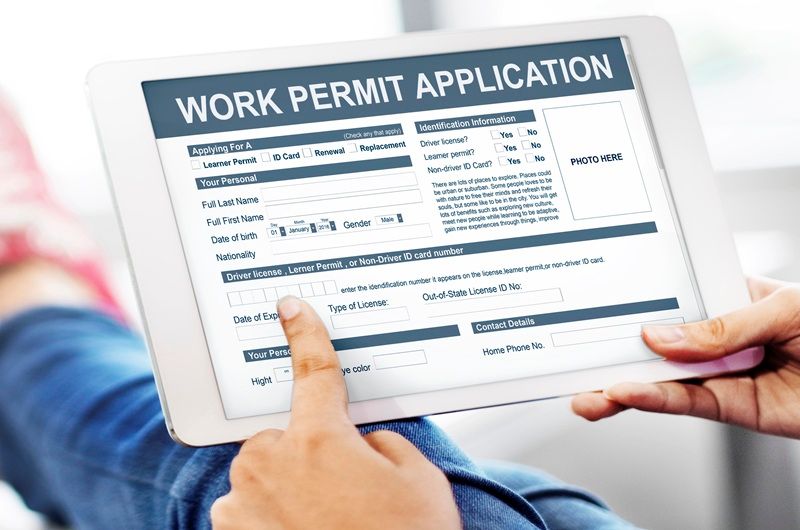
How Long Does The Deportation Process Take In The U.S.?
The timeline for deportation can vary significantly, making it vital to be informed about each step. Dealing with an initial apprehension or navigating through appeals, knowing what to expect can ease some of the stress and uncertainty. Understanding the process can provide clarity to your case.
This article provides a detailed breakdown of the deportation process, from the initial detention to the final resolution. It will help you better understand what lies ahead and how a Fort Worth Immigration Lawyer can support you through this challenging journey.
Initial Apprehension And Detention
The deportation process often begins with immigration authorities’ apprehension and detention, which can happen during routine checks or targeted operations. Once detained, individuals are typically held in a detention center.
The first few days are critical as detainees undergo initial processing, where their personal information and legal status are reviewed. During this time, you must seek legal assistance immediately. A lawyer can protect detainees’ rights and guide the next steps.
Detention can last from a few days to several weeks, depending on the complexity of the case and the availability of hearings. Legal counsel can also help request a bond hearing, which may allow the individual to be released while the case proceeds.
Notice To Appear (NTA) From The DHS
After detention, the next step is receiving a Notice to Appear (NTA). This document is a formal statement from the Department of Homeland Security (DHS) outlining the reasons for deportation and the charges against the individual. The NTA is critical as it marks the official start of the deportation proceedings.
The timeline for receiving an NTA can vary but typically occurs within a few weeks of detention. The NTA includes vital details such as the date, time, and location of the first hearing. Understanding the contents of the NTA and responding appropriately is essential, making the role of a lawyer indispensable at this stage. Lawyers can help interpret the charges and prepare a defense strategy.
Master Calendar Hearing
The Master Calendar Hearing is the first formal appearance before an immigration judge. It is a preliminary hearing to address procedural matters and establish the timeline for the case. The judge will review the charges and determine whether the case should proceed.
Depending on the court’s backlog, scheduling this hearing can take several weeks to months. The judge may set dates for filing applications during the hearing and schedule the Individual Hearing. This is not a trial but a procedural step to prepare all parties for the next stages.
Having legal representation during the Master Calendar Hearing is crucial. A lawyer can help clarify charges, submit necessary documents, and argue for immediate relief, such as a bond reduction or case dismissal.
Individual Hearing
The Individual Hearing is the core of the deportation process. During this hearing, the judge thoroughly examines the merits. It resembles a trial, with the government and the individual presenting evidence and witnesses. The judge considers all the information before making a decision.
The timeline from the Master Calendar Hearing to the Individual Hearing can vary widely. Due to scheduling constraints and case preparation, it often takes several months. Case complexity, witness availability, and additional evidence requirements can influence this duration.
During the Individual Hearing, the lawyer plays a pivotal role. They present arguments, cross-examine witnesses, and submit evidence to support their client’s case. Being well-prepared is critical, as the outcome of this hearing significantly impacts the individual’s future in the U.S.
Appeals Process
If the decision from the Individual Hearing is unfavorable, there is an option to appeal. The first level of appeal is to the Board of Immigration Appeals (BIA). Filing an appeal must occur within 30 days of the initial decision. The BIA reviews the case for legal errors and can either uphold the original decision or remand it for further proceedings.
The appeals process can be lengthy, often taking several months to over a year. If the BIA decision is still unfavorable, the next step is to appeal to the Federal Court. This process involves submitting briefs and potentially participating in oral arguments before a judge.
Having experienced legal representation is vital throughout the appeals process. Lawyers can identify legal errors in the initial decision, prepare compelling arguments, and navigate the complex procedural requirements of higher courts. The appeals process is intricate and requires detailed knowledge of immigration law and practice.
Factors Affecting Deportation Timelines
Several factors can influence the length of the deportation process. Case complexity is a significant determinant. Cases involving criminal charges, asylum claims, or extensive documentation can take longer to resolve. The immigration court backlog also affects the timeline. Courts with heavy caseloads may have prolonged waiting times for hearings.
Individual circumstances, such as health issues or the need for language translation services, can further affect the timeline. Additionally, policy changes and shifts in immigration enforcement priorities can impact how quickly cases move through the system.
Legal representation is perhaps the most critical factor in managing the deportation timeline. An experienced lawyer can streamline the process by filing all documents correctly and on time. They can also represent the individual effectively in hearings and potentially negotiate with immigration authorities for a quicker resolution.
Fort Worth Immigration Lawyers Can Assist You
At Fort Worth Immigration Lawyers, we offer comprehensive support for individuals facing deportation. Our services include assisting with detention issues, representing clients in hearings, and navigating the appeals process.
With a deep understanding of immigration law and local court procedures, we provide personalized legal strategies tailored to each client’s unique circumstances. We focus on protecting clients’ rights and achieving the best possible outcomes.
Further, we offer guidance from the initial apprehension to the final resolution, ensuring clients are well-prepared for each step of the process. Our approach emphasizes thorough preparation, clear communication, and dedicated advocacy.
For those settling in Fort Worth, having a reliable immigration lawyer can make a significant difference. Our commitment to clients helps alleviate some of the stress and uncertainty associated with the deportation process.
Understanding the deportation process timeline is vital for anyone facing this challenging journey. From initial detention to potential appeals, each step requires careful navigation and legal support. Factors such as case complexity and court backlogs can affect the duration, making it crucial to have experienced legal representation.
Fort Worth Immigration Lawyers can provide invaluable support, helping clients with personalized and effective legal strategies through each phase. If you or a loved one is facing deportation, we can help you achieve a favorable outcome.
Share this article
Table Of Contents
Latest articles
January 22, 2026
January 22, 2026
January 22, 2026
Categories







